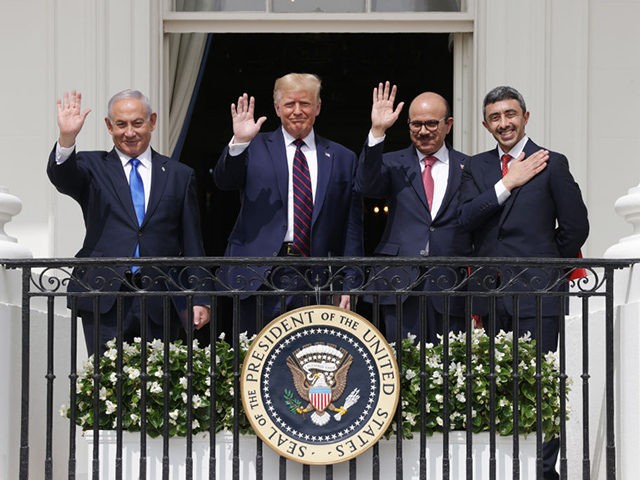The Abraham Accords, which have normalized relations between Israel and two Arab nations, underscore the foundational role of Abraham in all three of the Middle East’s monotheistic faiths: Judaism, Christianity and Islam.
President Trump’s breakthrough in finding a path to peace in this historically troubled region is a monumental accomplishment with world-changing potential. While signed too late to for Mr. Trump to receive the Nobel Peace Prize this year, even the president’s critics have been unable to ignore or disparage his achievement.
The Nation described the accord between Israel and the United Arab Emirates and Bahrain as “diplomacy in its most traditional sense from a non-traditional president.”
You don’t have to be an expert at reading between the lines to see that it took our non-traditional president and his skill at deal-making to divine this path to peace.
“We went into the back door,” President Trump said during a White House press conference Sept. 16 with Israeli Prime Minister Benjamin Netanyahu. “But I call it going into the very smart door.”
Peace has been elusive in the volatile Middle East since 1947, when the Palestinians – at the urging of the Arab nations – rejected a partition plan that would have established two states. The creation of Israel in 1948 met with Arab resolve to wipe the Jewish homeland off the map.
Many U.S. presidents have attempted to resolve the dispute that has claimed thousands of lives but have been unable to resolve disagreements about the right of return for Palestinians or the sovereignty of Jerusalem.
So what did Trump do differently?
White HouseThe first thing he did, in 2018, was to relocate the U.S. Embassy from Tel Aviv to Jerusalem, something successive presidents of both parties have promised but have been too timid to do.
Then, in developing the Abraham Accords, the president and his emissaries focused on the economic benefits Arab nations can gain by establishing diplomatic ties with Israel, in exchange for the suspension of plans for Israel to annex Palestinian lands in the West Bank.
The peace agreement sends a clear message to the region and the rest of the world that dialogue can reveal new pathways that circumvent the obstacles of the past. The important questions still need to answered, but a solution seems more likely when those still on the sidelines can see for themselves the benefits to be derived from the Abraham Accords.
Among the benefits to Muslims around the world is the opportunity to pray at the Al Aqsa Mosque in Jerusalem, considered to be one of Islam’s holiest sites and one of the most contested sites in the region.
The accords represent only the third peace deal between an Arab nation and Israel since 1948, and the first since Israel and Jordan signed a peace treaty some 25 years ago. Jewish groups across the denominational spectrum and secular organizations have hailed the agreement and credited the president.
The National Council of Young Israel, which presents Modern Orthodox Jews in America, credited the Trump administration and expressed hope for continued efforts to “create new strategic alliances, which could lead to enhanced cooperation, normalized relations, and a brighter and more secure future for the people who call that region home.”
The world is now watching to see what the major players in the Middle East – Saudi Arabia and Iran – will do now that the first steps have been taken down the path of peace.
Saudi King Salman bin Abdulaziz is said to oppose the accord because he believes the Palestinian cause has been abandoned, but his son and successor, Crown Prince Mohammed bin Salman, believes an economic partnership with Israel will help the two nations better align themselves against their common enemy, Iran.
At their joint press conference Trump promised that the Palestinians will be brought into the peace process “at the right time,” while Netanyahu expressed hope that even “the tyrants of Teheran” will ultimately see the benefits of peace in the Middle East.
As additional nations join the accord – Kuwait and Qatar are said to be on deck — and with each step forward, more of the greetings of the Abrahamic faiths are embodied: Shalom, assalam alakum and peace be with you.
Thank you, President Trump. Blessed are the peacemakers.
Father Frank Pavone is national director of Priests for Life.

COMMENTS
Please let us know if you're having issues with commenting.